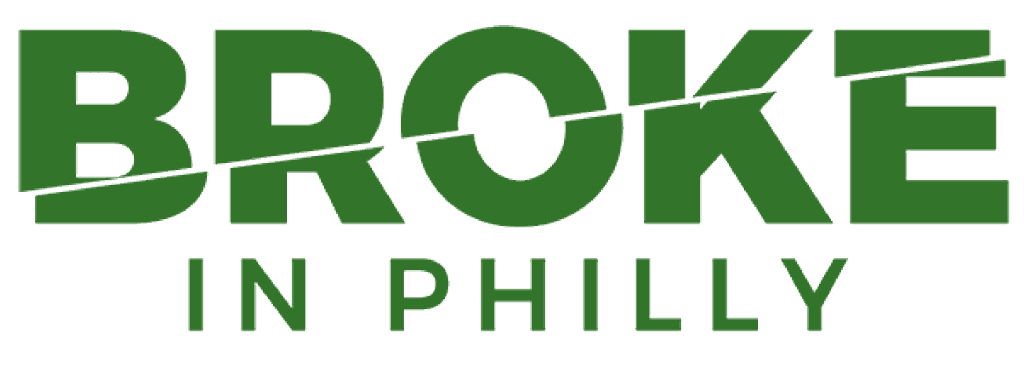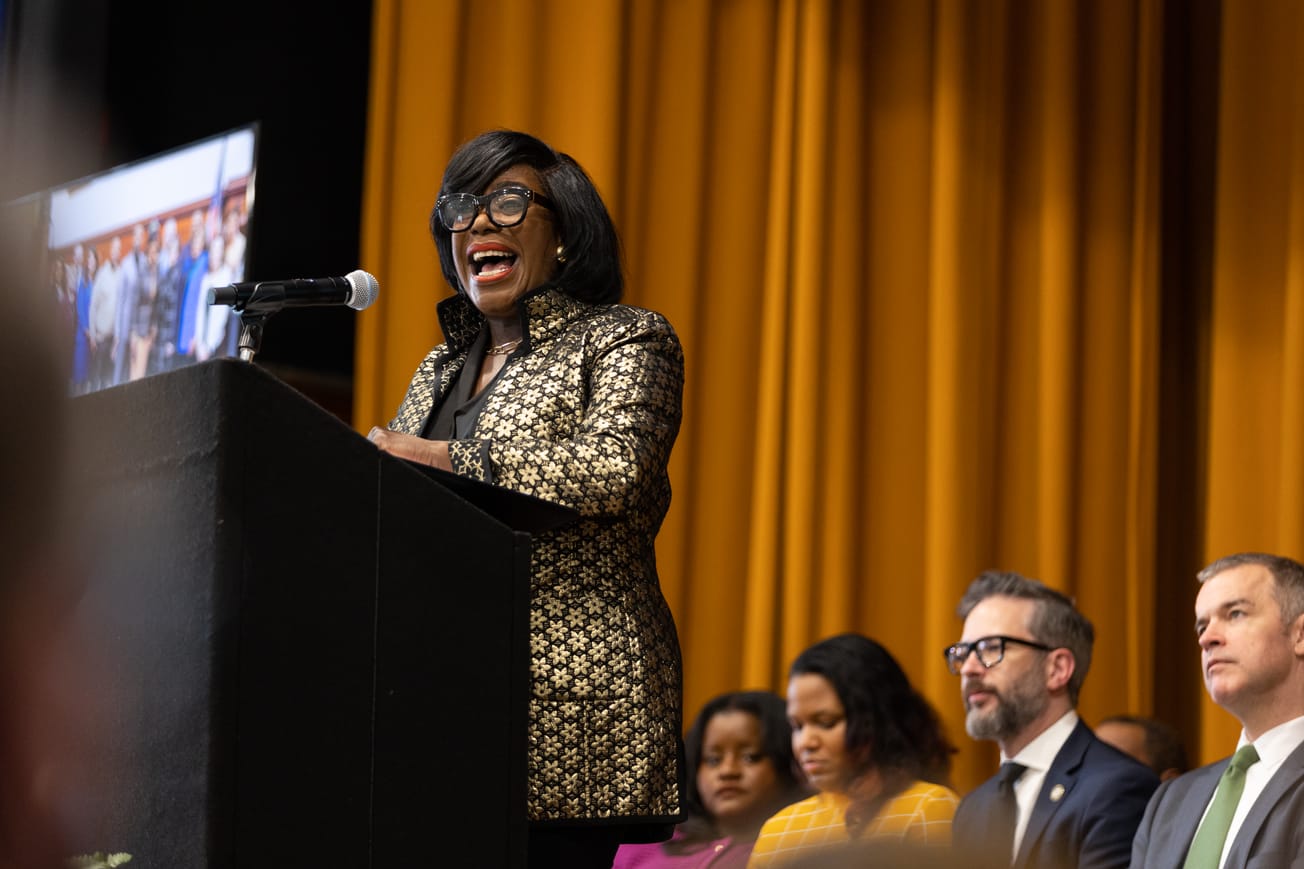When Vietnam veteran John Tomys heard an explosion in Kensington last week, his first thought wasn’t of fireworks — it was of the Vietnam War. The 66-year-old’s heart raced, his eyes dilated, and his whole body tensed as the crack of the firework “sent him back real quick.”
Tomys is a resident at Impact Services’ Hancock Manor veterans’ housing facility in Kensington, also known by its residents as “174.” Since reports of nightly explosions started two weeks ago following demonstrations over the killing of George Floyd by a police officer, Tomys and the other residents have experienced increased agitation and amplified effects of post-traumatic stress disorder (PTSD). These reports of explosions and fireworks follow a series of businesses being looted, properties burned, and ATM explosions over the last two weeks in Philadelphia.
The nightly loud explosions and fireworks remind Tomys of the sounds he heard while serving on a long-range reconnaissance patrol in Vietnam. He said that sometimes the noises agitate the symptoms of his PTSD to the point where he has to go outside and physically check to make sure that the sounds are only fireworks. Checking is one of the mental tools he has learned from his time receiving mental health care from the Philly Veterans Affairs (VA) Medical Center.
“Especially in Vietnam, there was a lot of night combat — they used to send out fireworks and keep us up all night to get us agitated, so we would lose our cool,” he said. “You lose your cool in combat, you die, right? So it brings back those memories.”
William Clack, a Vietnam veteran who also lives at 174, said that he hasn’t been able to paint as often as he used to because of his stress over recent events, exacerbated by the loud sounds. For Clack, the recent explosions and fireworks have affected his sleep schedule since they usually begin when he goes to bed, he said.
“When I’m trying to go to sleep, [fireworks] keep me up,” said Clack. “Then I just say, ‘Well, I’ll wait a minute and once this thing dies down a little bit, maybe I’ll close my eyes and go to sleep.’”
But that’s usually when fireworks start back up again, he said.
City spokesperson Kelly Confracisco wrote in an email on June 11 that during the 10 days prior, the Philadelphia Police Department and Fire Department responded to at least 137 explosions in the city. She said that approximately 50 of those explosions involved ATMs. In an email on Monday, the city reported that there were no additional reports of explosions over the weekend.
However, the veterans at 174 said the fireworks and other loud sounds in Kensington have continued into this week. And, with the Fourth of July approaching, Tomys and Clack said they don’t see the explosions stopping anytime soon.
According to Tomys, in the past, Impact Services’ facility managers have posted signs outside of 174 asking the public to be mindful of the veterans and keep a distance when using fireworks to celebrate the Fourth of July. However, according to Clack, since last week, people have been selling fireworks around the neighborhood and along their block.
“There’s a guy who is sitting over here by the corner,” Clack said. “They’re selling fireworks — got cases of ‘em, nothing but fireworks — they’re selling all different kinds over there.”

Avoidance is like the clamp on a ‘pressure cooker’
Dr. Leah Blain is a licensed clinical psychologist specializing in trauma recovery and the clinic director at the University of Penn’s Steven A. Cohen Military Family Clinic who has been treating veterans with PTSD for several years.
According to Blain, when stress is worsened over time and then agitated by unpredictable variables like a pandemic, national unrest, — or a barrage of nightly explosions and fireworks — it can create an unstable environment for people with PTSD.
Veterans who have PTSD may experience increased anxiety, agitation, insomnia, and flashbacks, or nightmares, which makes them feel like they’re experiencing the traumatic event again, Blain said. When someone is experiencing symptoms of PTSD, their cortisol (the primary stress hormone) levels increase, which can bring a person to an increased state of anxiety and agitation. This makes a person’s response to anxiety and fear trigger a lot more easily, she added.
“So I think in the backdrop of all of these things that are going on, if you think about then layering on specific types of sound patterns — a lot of unexpected loud, booming noises are particularly triggering for people with PTSD,” Blain said.
When someone with PTSD hasn’t processed the trauma they experienced, Blain said a cycle is created where trauma doesn’t get processed, and a person looks to avoid these issues. She likens this situation to a “pressure cooker.”
According to Blain, avoidance is the “clamp” on the cooker that tries to keep the person from becoming too agitated and volatile from the pent-up trauma and added stressors. However, avoidance doesn’t treat the problem but rather pushes its effects down the road. In order to release the pressure, a person has to process their trauma, Blain said.

Fireworks “all night long” and “the later it gets — the louder”
For Tomys, he said he wouldn’t be where he is now without the coping tools he’s learned from his care providers at the Veterans Affairs hospital in Philadelphia.
Between making telehealth appointments with his counselors, finding a quiet place alone, or physically checking to make sure nothing’s gone wrong — Tomys says that it all comes down to “confronting your fear.”
“Most of the time, it’s in your head,” he said. “If you go confront it and you see it’s not what you thought was in your head, it’s easier to deal with.”
However, even with the steps Tomys has taken to manage his symptoms of PTSD, there are still others in the 174 veteran community he fears are not taking the nightly fireworks as well as he is.
“I had to double up on sleeping medication, and that’s what a lot of people are doing here,” Tomys said. “A lot of people have told the VA and they understand because it’s happening all over Philadelphia right now with the fireworks.”
Instead of avoiding the issues, Tomys encourages each person to find out what works for them and to know that the VA mental health services are there.
Tomys and the other veterans at 174 hope that people around the neighborhood keep them in mind when celebrating with fireworks in the future. They hope to see the nightly waves of fireworks end soon, too.
“Just think about the Vets that live around here — please stop and think,” Tomys said. “Do it within a time limit and then stop — not all night long. That’s what we hear all night long. And the later it gets — the louder.”
Need support? Here are some resources for veterans seeking mental health care:
Steven A. Cohen Military Family Clinic
3535 Market St., Suite 670
Philadelphia, PA 19104
Clinic: 844.573.3146
Office: 215-898-1699
The military family clinic provides evidence-based mental health care to veterans, including those from the National Guard and Reserves, regardless of their service history, with a focus on post-9/11 veterans. The clinic’s services are free for veterans and wait times vary between 0-2 weeks (and within 24 hours for people with high suicide risk).
PTSD Coach App
PTSD Coach is an app for people who have or may have post-traumatic stress disorder (PTSD). The app provides educational information about professional care, self-assessment tests, referrals to find support and daily tips for de-stressing with PTSD.
If you would like to learn more about this app and download it to your Apple or Android mobile device, click here. If you don’t have access to a smartphone and would like to use the online version of PTSD Coach, click here.
Veterans Crisis Hotline
You can talk to caring, qualified responders from the Department of Veterans Affairs — many of whom are veterans themselves — by phone, online chat, or text message.
Ways to reach the Veterans Crisis Hotline:
- Call 1-800-273-8255, and press 1 for Veterans
- To visit the Veterans Crisis Hotline website, click here.
- If you are deaf or hard-of-hearing, call 1-800-799-4889 to receive veterans crisis support.
Coaching Into Care National Helpline
Phone: (888) 823-7458
Email: CoachingIntoCare@va.gov
Coaching Into Care is a national telephone service from the VA, which aims to educate, support, and empower family members and friends who are seeking care or services for a veteran. These services help families and veterans’ support networks find appropriate services at their local VA facility or in their community.
Ways to reach Coaching Into Care:
- Call (888) 823-7458 from 8 a.m. – 8 p.m (eastern time zone), Monday – Friday. If you get their voicemail, leave a message with your telephone number and they will call you back within one business day.
- Email CoachingIntoCare@va.gov for a return call within 1 business day.
Veterans Multiservice Center
213-217 N. 4th Street
Philadelphia, PA 19106
Phone: 215-923-2600
Hours: Monday – Friday, 8:30am to 4:30pm
The VMC on 213 N 4th St., 2nd Floor Philadelphia, PA 19106 is home to the city’s VA Community Resource and Referral Centers (CRRCs). At this location, veterans can get help accessing resources and referrals to community care providers.
Coatesville Veterans Affairs Medical Center
1400 Blackhorse Hill Road
Coatesville, PA 19320
Phone: 610-384-7711 & 800-290-6172
- For general and non-emergency issues, Monday thru Friday from 8:00 a.m. to 4:30 p.m., call 610-384-7711 or toll-free at 1-800-290-6172.
- On evenings and weekends, and non-emergent health needs, call the Nurse Health Line at 1-888-558-3812.
- To schedule an appointment, contact the VA Coatesville at any of the numbers listed on their appointments page, or visit My HealtheVet.
Corporal Michael J. Crescenz VA Medical Center (PHL)
3900 Woodland Avenue
Philadelphia , PA 19104
Phone: 215-823-5800 & 800-949-1001
- Contact the telephone care line if you need medical advice, have a question about your medication, or need to schedule a non-urgent appointment. These numbers are available 24 hours a day, seven days a week: 215-823-4133 (select option 8) or 1-800-949-1001
To schedule an appointment, please contact us at any of the numbers listed on our appointments page, or visit My Health Vet.
Kensington Voice is one of more than 20 news organizations producing Broke in Philly, a collaborative reporting project on economic mobility. Read more at brokeinphilly.org or follow on Twitter at @BrokeInPhilly.
Editor: Jillian Bauer-Reese, Zari Tarazona, / Designer: Jillian Bauer-Reese / Translator: N/A






